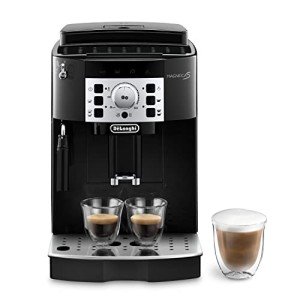Bean To Cup Espresso Coffee Machine: The Ultimate Guide
Over the last few years, the coffee culture has experienced a significant change, with the rise of home brewing devices providing benefit and quality comparable to café offerings. Among these devices, the Bean to Cup Espresso Coffee Machine stands apart as a preferred among coffee lovers and casual drinkers alike. This extensive guide explores what these machines are, how they work, the advantages they offer, and factors to consider when picking the ideal one.
What is a Bean to Cup Espresso Coffee Machine?
A Bean to Cup Espresso Coffee Machine is an advanced coffee brewing device that grinds coffee beans fresh for each cup, automating the entire espresso-making process. These machines usually feature built-in mills, incorporated milk frothers, and exact developing technology, allowing users to produce high-quality espressos, lattes, coffees, and more, all from the convenience of their homes. The convenience, coupled with the rich and robust flavors produced, has made these machines progressively popular.
How Does It Work?
The basic operation of a Bean to Cup Espresso Coffee Machine can be broken down into a number of crucial steps:
Bean Grinding
- The machine grinds whole coffee beans right away before developing, making sure optimum freshness and taste retention.
Brewing
- Ground coffee is loaded into a filter, and warm water is forced through the coffee premises at high pressure, which is necessary for developing espresso.
Frothing (Optional)
- Many designs consist of a steam wand or milk frother for preparing frothed milk for lattes and coffees.
Serving
- The final phase includes dispensing the brewed coffee into a cup, typically with programmable functions for personalization.
Advantages of Bean to Cup Espresso Machines
Investing in a Bean to Cup Espresso Coffee Machine provides many advantages, contributing to its growing appeal.
| Benefit | Description |
|---|---|
| Convenience | One-touch operation decreases the time and effort required to prepare coffee. |
| Quality | Newly ground beans lead to a richer, more tasty drink compared to pre-ground alternatives. |
| Personalization | Users can change settings to suit individual choices, including grind size, coffee strength, and milk froth levels. |
| Affordable | Although the preliminary investment may be high, cost savings on coffee buy from cafés can be considerable with time. |
| Adaptability | The ability to brew numerous coffee types, from espresso to cappuccino, widens the machine's appeal. |
Secret Features to Look For
When picking a Bean to Cup Espresso Coffee Machine, various features can influence the purchase decision. Below are essential aspects to think about:
Grinder Type
- Burr mills are chosen over blade grinders for their consistent grind size.
Developing Pressure
- Search for machines that use at least 15 bars of pressure for ideal espresso extraction.
Milk Frother
- Choose between manual steam wands or automatic milk frothers based on choices for milk texture and foam.
Interface
- An easy to use control panel with programmable settings improves the overall experience.
Size and Design
- Consider the counter top space readily available and choose a design that matches your kitchen aesthetic appeals.
Maintenance Options
- Some machines offer automatic cleansing cycles, which can save time and effort in upkeep.
Popular Bean to Cup Espresso Machines
Picking a machine that fits one's needs can be challenging. Below is a list of popular designs, known for their reliability and efficiency.
| Model | Key Features | Price Range |
|---|---|---|
| De'Longhi Magnifica ESAM3300 | Adjustable coffee strength, compact design | ₤ 550 - ₤ 700 |
| Breville Barista Touch | Touchscreen controls, incorporated cone-shaped burr mill | ₤ 800 - ₤ 1,150 |
| Saeco PicoBaristo | Automatic milk frother, 12 coffee specialties | ₤ 900 - ₤ 1,300 |
| Jura E8 | Pulse Extraction Process, Alexa Compatible | ₤ 1,800 - ₤ 2,500 |
| Gaggia Anima | Easy to clean up, programmable settings | ₤ 500 - ₤ 800 |
Maintenance Tips
Keeping a Bean to Cup Espresso Coffee Machine in good condition is necessary for making sure longevity and optimal efficiency. Here are some maintenance suggestions:
- Regular Cleaning: Clean the machine's parts frequently, including the drip tray, coffee premises container, and water tank.
- Descaling: Perform descaling every couple of months based upon water solidity and usage to prevent mineral buildup.
- Change Water Filter: If the machine has a water filtration system, change the filter as advised.
- Examine Seals and Gaskets: Check for wear and tear to avoid leakages and guarantee correct pressure throughout brewing.
Frequently asked questions
1. Are Bean to Cup Espresso Machines simple to use?Yes, the majority of models are designed for user benefit with basic control panels and one-touch operation. 2. Can Coffee Machine From Beans utilize pre-ground coffee in these machines?While some machines enable the use of pre-ground coffee, the main benefit depends on using whole beans for fresh grinding. 3. How typically need to I clean my Bean to Cup machine?Regular upkeep is key; daily cleaning of detachable parts and descaling every 2-3 months are typically recommended. 4. What is the average
lifespan of a Bean to Cup Espresso Coffee Machine?With correct upkeep, these machines can last anywhere from 5 to 15 years based on usage quality
. 5. Are these machines worth the investment?Though they can be pricey, the benefit, quality coffee production, and long-term savings make them a deserving investment for numerous coffee lovers. Investing in a Bean to Cup
Espresso Coffee Machine can substantially enhance the home
coffee experience. By offering newly brewed, top quality coffee, these machines cater to the growing need for café-style beverages in the comfort of one's cooking area. With numerous choices on the marketplace, comprehending features and individual preferences will assist in picking the best machine to fit any coffee enthusiast's requirements.

